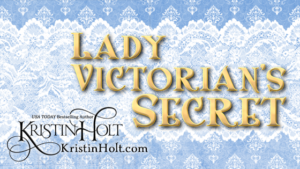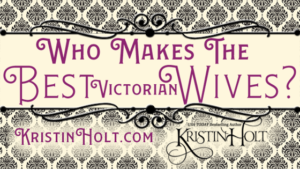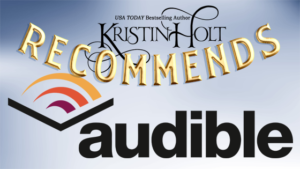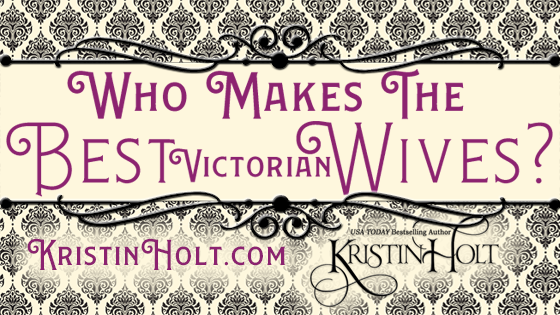
by Kristin Holt | Jul 22, 2019 | Articles
Victorian-era American wisdom regarding romance, marriage, and courtship is fascinating! A collection of 19th century newspaper clippings provides a wide range of answers to the question: Who Makes the Best (Victorian) Wives? Throughout the late nineteenth century, much (conflicting) advice for the hymeneal-minded.
Note: Part of a blog series including Blondes are Favorites (Who Makes the Best (Victorian) Wives?).
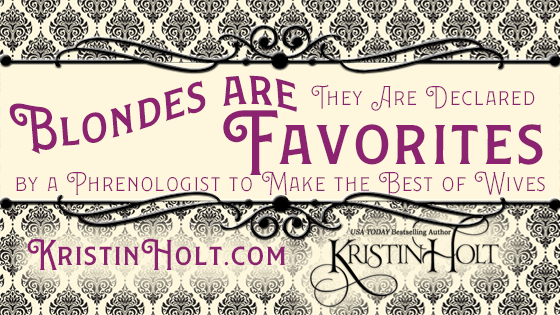
by Kristin Holt | Jul 22, 2019 | Articles
A well-known New York Phrenologist gives late-Victorian-era American romance advice. “Blondes are Favorites,” he declared, backing up this observation with Phrenology. Much hymeneal wisdom packed into one interview, contained in the vintage newspaper article that sprang from a newspaperman interviewing the phrenologist. While affable blondes are best, beware of “Women of Genius” (those inclined to education and adopting “masculine” attributes such as self-protection and self-support). Victorian attitudes and perspectives circa 1890 shed much light on cultural norms.
Part of blog series: Who Makes the Best (Victorian) Wives?
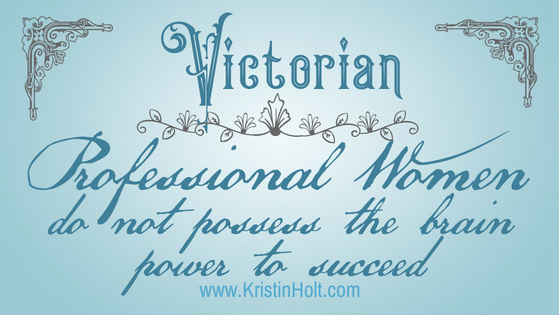
by Kristin Holt | Jun 16, 2018 | Articles
Nineteenth Century popular belief–wholly supported by Medical Doctors’ and scientists’ claims–genuinely believed that educating females in the same manner as males invited an entire host of disastrous results. Those terrifying results included everything from destruction to the woman’s reproductive system, mental breaks (yes, insanity!), and a long list of physical diseases. Because the vast majority believed these consequences to be true, women weren’t allowed to seek education in a male-dominated classroom. The battle over co-education continued long after the late 19th Century for these reasons. Not only was the woman’s mind and body at terrible risk, should she be educated like a male, but everyone knew a female mind couldn’t take in significant learning.
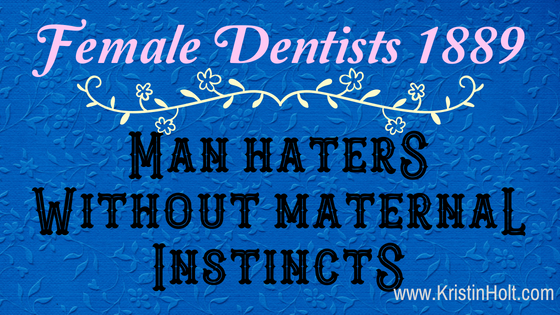
by Kristin Holt | Jun 14, 2018 | Articles
Nineteenth Century American women who desired an advanced education (and to work as a professional) fought an uphill battle. As late as the final decade (1890s) cultural beliefs demanded “good” women made home a bit of heaven on earth, toiled only as a help-meet to her husband, and found all the joy and satisfaction there she could possibly need. Historical sources underscore this dated belief system, and set the stage for the challenges faced by my character Dr. Isabella Pattison, DDS, in Isabella’s Calico Groom (within Calico Ball: Timeless Western Collection).






